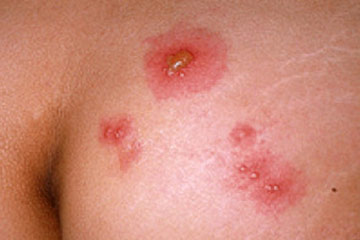Human Papilloma Virus (HPV) Test FDA's Approval
Digene Hybrid Capture 2 High-Risk HPV DNA
This is a brief overview of information related to FDA's approval to market this product.
What is it?
The Digene HC2 High-Risk HPV DNA Test is a laboratory test used to show the presence or absence of the genetic (DNA) material from the Human Papilloma Virus (HPV), in cells from a woman's cervix. (The cervix is the lower part of the uterus or womb.)
When HPV genetic material is found in these cells, it sometimes indicates the potential or the presence of disease. The cervical cells are usually obtained during a Pap Test (“pap smear”), when cells are obtained by gently scraping the surface of the cervix.
How does it work?
The test causes the release of DNA from the cervical cells: Normal DNA and, if present,HPV DNA. Probe molecules are added that combine with the DNA to form what is called DNA-Probe-Hybrid. This Hybrid recognizes many types of high-risk HPVs.
Then, light-producing antibodies are added and combine with the DNA-Probe Hybrid. The amount of light produced above a certain level indicates the presence of HPV. Anything below that level indicates either the absence of HPV or HPV-levels that are too low to detect.
When is it used?
The HPV-DNA Test is used only in conjunction with Pap Testing.
The test is used:
- When a woman’s Pap Test results are mildly abnormal. The HPV-DNA Test is then used to tell whether or not HPV is present at high enough levels to indicate that an HPV infection exists. If she has an HPV infection, she may be tested further to be sure that she does not have serious cervical abnormalities.
- When women over age 30 have HPV infections that do not disappear over time. These women may be at greater risk for developing cervical disease. Women over 30 with a positive Pap Test and a positive HPV-DNA Test have a higher than average risk of cervical cancer and may need to be tested more frequently. Only a small percentage of HPV infections, however, lead to cancer.
Note: Women with normal Pap test results and an absence of HPV infection are at very low risk for developing cervical cancer but should be tested at regular intervals, as prescribed by a doctor. There is not enough information currently to tell us how long women with normal Pap Test results remain at low risk. There is also not enough information to decide how frequently an HPV-infected woman should be tested.
Additional information: Summary of Safety and Effectiveness and labeling will be available at:http://www.accessdata.fda.gov/scripts/cdrh/cfdocs/cftopic/pma/pma.cfm?num=p890064s009
Source
Digene Hybrid Capture 2 High-Risk HPV DNA Test - P890064 S009 A004
U.S. Food and Drug Administration
Related Topics
-
Human Papillomavirus
-
Human Papillomavirus Vaccines: Questions and Answers
-
Human Papilloma Virus Signs and Symptoms
-
Human Papillomavirus Screening
-
Cervical Cancer Screening Tests
-
What Does My Pap Test Result Mean?
-
What Does My HPV Test Result Mean?
-
HPV Test FDA's Approval
-
Human Papillomavirus Treatment
-
Human Papillomavirus Prevention
-
Human Papillomavirus and Men
-
HPV and Men
-
Human Papillomavirus Infection Treatment
-
Human Papillomavirus and Genital Warts
-
Human Papillomavirus Associated Cancers
United States, 2004–2008 -
Preventing Cervical Cancer Worldwide (PDF document)
Vaccine






